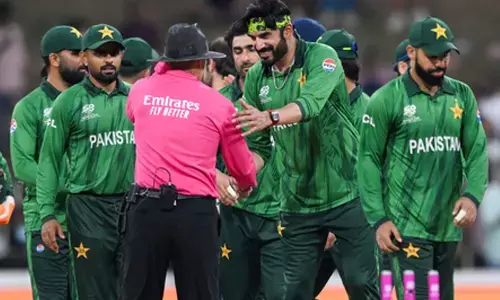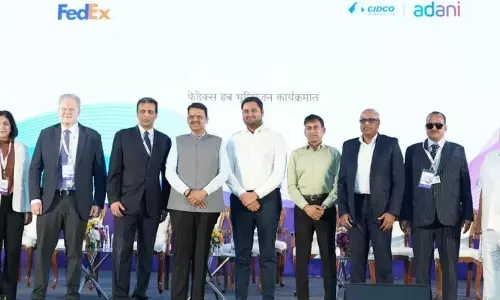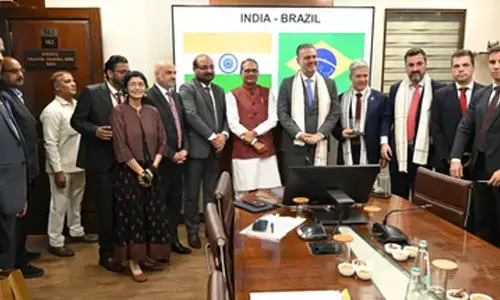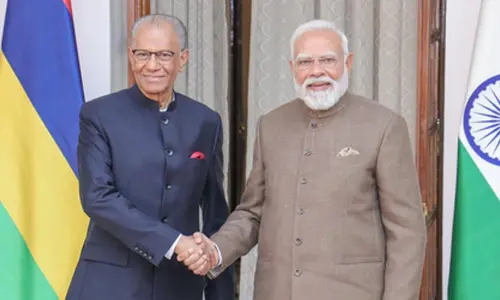The spoken truth
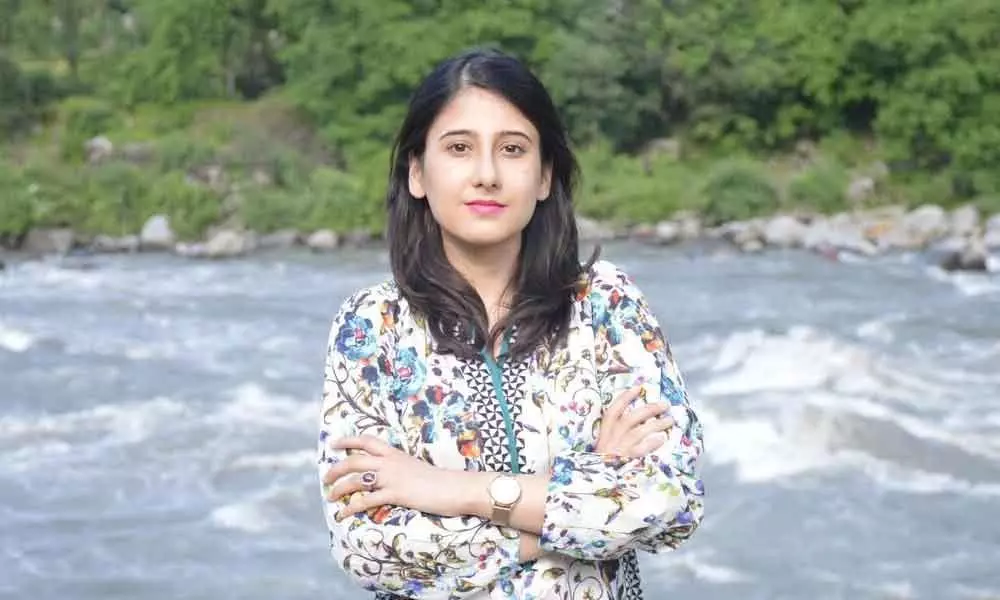
She says that neither Partition nor the events of 1971 are static. That they continue to live in diverse manifestations, informing the collective narrative of India, Pakistan and Bangladesh.
She says that neither Partition nor the events of 1971 are static. That they continue to live in diverse manifestations, informing the collective narrative of India, Pakistan and Bangladesh.
"For instance, India and Pakistan still define themselves in opposition to each other, claiming to be everything the other is not - more pious, righteous, secular, progressive than those across the border.
Patriotism is more often than not based on hostility towards the other," stresses Pakistani author Anam Zakaria, whose third book '1971' (Penguin) will be released in India soon.
In her latest work, she navigates the widely varied terrain that is 1971 across Pakistan, Bangladesh and India, and sifts through three distinct state narratives, studying the institutionalisation of the memory of the year and its events.
Anam, who juxtaposes State narratives with people's history on the ground, bringing forth the nuanced experiences of those who lived through the war and has used intergenerational interviews, textbook analyses, visits to schools and travels to museums and sites commemorating 1971 in her latest book, tells that it was while researching her on first book, 'Footprints of Partition' that she began to think more deeply about 1971.
"The oral history interviews I conducted across Pakistan and India revealed that there was no one singular narrative of 1947. This made me think of how 1971 too must hold different meanings in the region.
It is defined as dismemberment or the 'Fall of Dacca' in Pakistan, hailed as 'liberation' in Bangladesh and reinforces the 'saviour' narrative in India.
I was curious to explore these unique meanings 1971 has taken on post 1971 and the ways in which the year continues to shape national imagination in all three countries," she tells in an exclusive interview.
Adding that while researching for '1971', she held extensive oral history interviews with Bangladeshis, Pakistanis and Indians who lived through the war as well as conversations with the children and grandchildren of those who were killed, the author elaborates: "Besides, I also interviewed Pakistani army officers, poets, writers and activists who resisted the military operation in East Pakistan, in some cases even being jailed in the process for their opposition to state policy.
"In addition, the book includes visits to museums and schools to observe the ways in which information on 1971 is made present and absent and includes textbook analyses to understand how the past is taught today.
I also visited camps in Bangladesh where thousands of Urdu-speaking families, often called 'stranded Pakistanis' continue to reside and to Bengali neighbourhoods in Pakistan to explore the impact 1971 has had on these ethnic minorities in both countries."
The author, who has employed oral history in her earlier works too, insists that what fascinates her towards it is its power in the ability to challenge state narratives that try to build a homogeneous, singular national memory, often premised on hostility towards the 'other'.
"I believe they can offer a nuanced understanding of the past, punctuating national memory with a different interpretation of history, one which is centred on people's experiences.
For instance, in state level history, one will hardly find stories of supposedly antagonistic groups rescuing each other in 1947 or 1971 by risking their own lives.
"Yet, the oral histories I've collected reveal how humanity prevailed even in these catastrophic moments and how so many people only survived due to help from members from the 'other' community. These stories challenge one-sided narratives of violence which are perpetuated by states to serve national interests," she says.
Talk to her about the undependability of several history sources in the subcontinent, and she asserts: "Yes, I find so many of the 'conventional' sources of history, especially school textbooks, so distorted and prejudiced that I rely on oral histories.
Oral histories enable me to unlearn the myopic understanding imparted in schools and through media and explore my past through a more dynamic and tolerant lens."
Though this may be her third work of non-fiction after 'The Footprints of Partition' and 'The Great Divide', Anam says that she is keen to experiment with the fiction format in the near future.
"However, for now, I feel that the oral histories I've come across, need to be documented. I fear that we are on the brink of losing these nuanced narratives of the past as the generations that lived through that history pass on.
I have a sense of urgency to record and share these narratives." A development professional, a psychotherapist and a writer, for her, all these effortlessly come together in a "meaningful whole".
"Now, a lot of my work involves speaking with people about trauma memories. I decided to pursue training in counselling so that I could try to work more sensitively and ethically with those who chose to share their stories with me."
As the conversation veers towards what history textbooks feed children in both India and Pakistan and she says: "These books demonize the other - be it Muslim or Hindu, Pakistani or Indian - emphasizing one-sided stories of violence and/or omitting historical facts inconvenient to present-day national politics.
"In Pakistani textbooks, children are told that Hindus can never become the true friends of Muslims. In Indian textbooks, the narrative on the independence movement socialises children to perceive Pakistan an illegitimate achievement.
My worry is that in present-day context where the majority of Indians and Pakistanis never meet each other, these texts have the power of becoming the only 'truth' children have access to."


